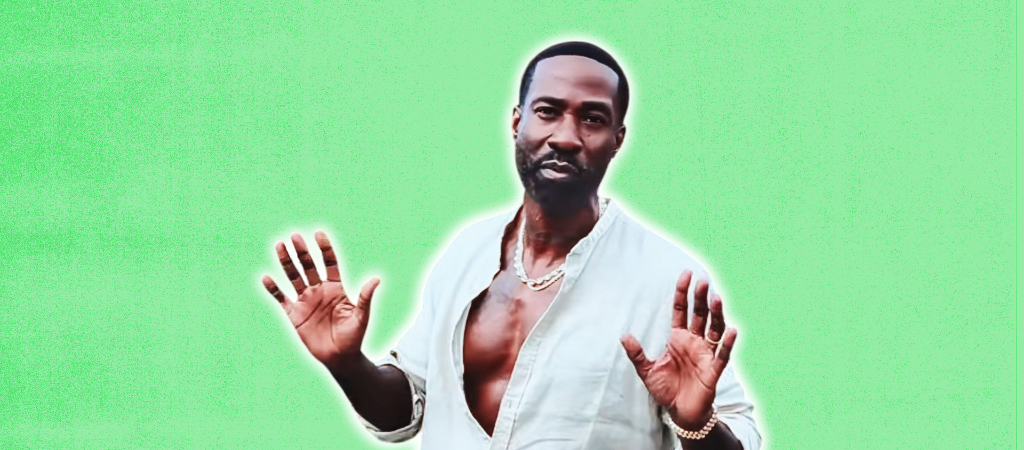All hail, hip-hop’s underground king! Ransom doesn’t just make music—he studies the world around him, challenges comfort, and turns philosophy into bars. In 2025 alone, he’s dropped three distinct projects — The Final Call with Dave East, The Reinvention with DJ Premier, and, his most recent release, The Uncomfortable Truth with producer Conductor Williams — each a bold exploration of life, growth, and perspective.
In this exclusive conversation, Ran breaks down his creative process, the hyper-observant lens shaping his music, and the mindset that helps him navigate recognition, criticism, and personal evolution. It’s a rare glimpse into the mind of an artist determined to be recognized as one of rap’s greatest voices.
Ran, you hinted during our Rap Radar conversation with DJ Premier that this Conductor project was up next. Why release it now?
Most people would sit on something like The Reinvention and bask in the moment. That’s not me. I’m always moving. The material’s been done, and I’m already two, three steps ahead with new projects.
2025 has been prolific — The Final Call, The Reinvention, and now, The Uncomfortable Truth. How do these three projects compliment each other ?
Each one has its own world. The Final Call was reflective and intellectual — life, religion, culture. The Reinvention explored personal struggles, fatherhood, and growth. The Uncomfortable Truth confronts society’s tendency to avoid discomfort. If you want to succeed, you must be comfortable being uncomfortable.
A lot of this record feels like you’re holding people accountable.
Absolutely. People get too sensitive about trivial things. Someone not liking you doesn’t affect your career or your kids — unless you let it. I welcome discourse, even disagreement. I’m not looking for universal agreement.
So if someone is offended, that’s fine?
Fine. But it should spark conversation. Disagreeing is different from reacting emotionally. Understanding is more important than pleasing everyone.
You close the album with “Trigger Or Trigga,” a provocative record — and clearly on purpose.
It’s a punch in the face, yes. Everything I do is intentional. Words can trigger, but actions matter more. People survive life-threatening events but get caught up over words—that’s the irony.
Like someone saying they’d take a bullet for their kids but won’t put down a cheeseburger. Prioritize your health. Too many people lose perspective.
How has your perspective on words and conflict evolved?
When you’re young, you’ll die over insults. As you age, you’ve got things to protect, and you ask: “Is it worth it?” Words shouldn’t dictate actions. Too many people die or go to prison over them.
The album’s second half turns darker. What inspired “Flowers & Tombstones”?
Observation. People posting from funerals or sharing things that should be private — it’s disrespectful. Some moments are sacred. Grieve, honor, reflect, then share.
Your album sequencing always feels deliberate.
Like a movie. You gotta grab attention in five seconds, then guide the listener emotionally. Highs, lows, reflection, full circle. No padding. My favorite albums — Illmatic, Thriller, Only Built 4 Cuban Linx —are concise and intentional.
Let’s talk about the powerful intro, “Clairvoyance.”
It’s about seeing clearly, reading the room. I observe labels, fans, discourse. It’s vision, not emotion.
You slip in a slick Post Malone bar. What’s your approach to that level of wordplay?
Context. Everyone missed it. I visualize how legends would act and craft my words around that. Cleverness without context is meaningless.
“Blood Stains On Coliseum Floors” draws a line between gladiators and spectators.
Rap is a gladiator sport. People on the couch criticizing aren’t in the arena. There are doers and observers no in-between.
Social media has made people hypersensitive.
Everyone wants agreement, but life isn’t about universal approval. Stand by your work. Some will love it, some will hate it—that’s normal.
Working with the Conductor on “Bomaye,” what’s your process?
Visualization. I picture myself in a narrative — Ali in Zaire. Replace Ali with me. It’s not modest, and it’s not supposed to be. It’s about claiming greatness confidently.
“Late Replies,” I hear, is your favorite. It feels personal.
It’s the last joint I recorded, so it feels fresh. It’s about real situations, male friendships, and knowing when to disengage without losing myself.
You’ve mentioned being selective in group chats.
Yes. I avoid meaningless chatter. Family, business, strategy—that’s my circle. Accessibility affects respect.
“Human Animal” draws from the book of the same name. Why the warrior mindset?
Ancient philosophy, Stoicism, Oedipus. I love it. Learning from history, applying lessons, tempering your actions, reading people. Stoicism transformed my life.
How does that shape your artistry?
Everything is strategic — the writing, recording, sequencing. Reading the room, anticipating reactions. Stoicism guides all of it.
What’s next for 2026?
Me and Boldy James in February. Another Premier project. And my solo album — that’s the one. All concise, intentional, 10–12 songs each.
Before we go, I definitely wanna acknowledge Art From Noah, The Uncomfortable Truth album cover is so dope.
We’re sticking to real art — paintings from scratch. AI is changing the landscape, but independence and understanding cycles keep you ahead.
Ran 2025 Playlist







